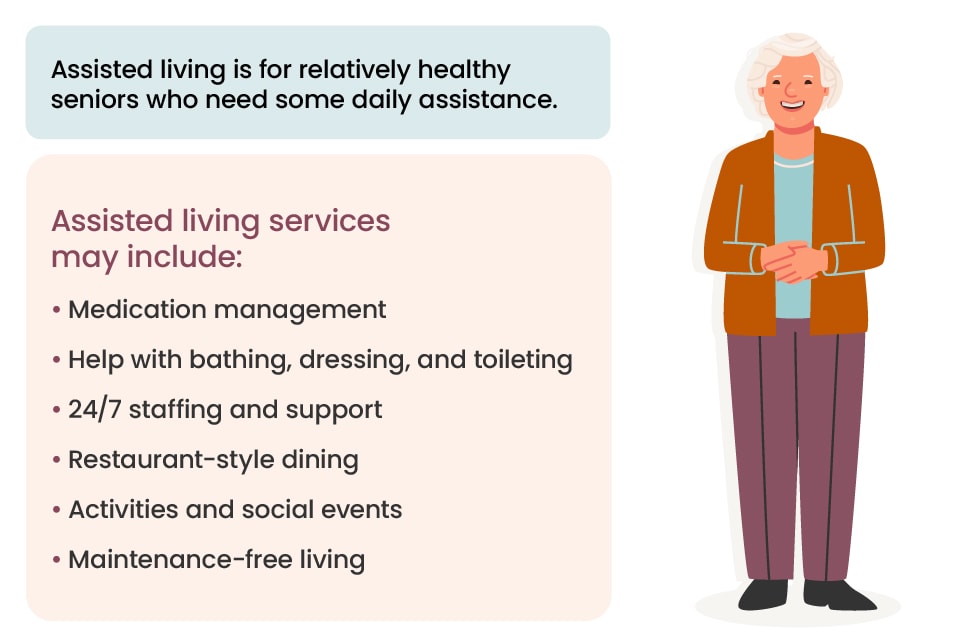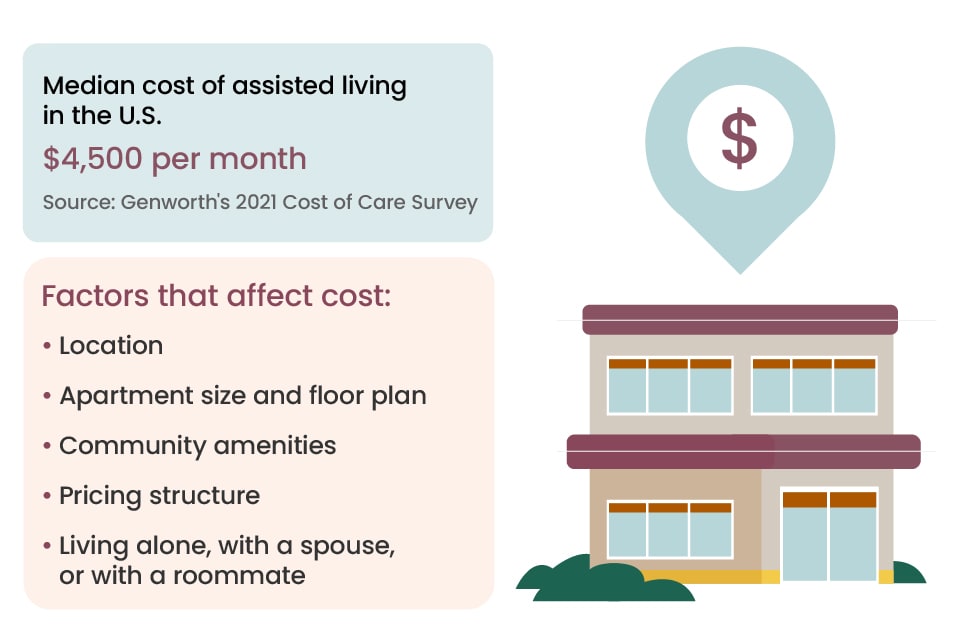About Senior Health
Explore senior health articlesAbout Senior Care Options
Explore senior living articlesAbout Finances & Legal
Explore finances and legal articlesAbout Products for Seniors
Explore products for seniorsAbout Senior Health
Explore senior health articlesAbout Senior Care Options
Explore senior living articlesAbout Finances & Legal
Explore finances and legal articlesAbout Products for Seniors
Explore products for seniors

As your loved one ages, they may begin to need help with daily tasks and activities. If they’re still active and relatively healthy, an assisted living community can provide the assistance they need, along with planned activities, social events, and a variety of amenities. Seniors in assisted living can expect personalized care, help with activities of daily living (ADLs) like dressing and bathing, restaurant-style dining experiences, and an exciting array of social activities in a safe residential setting. Assisted living can offer your loved one a sense of community and independence as they age.
Our free tool provides options, advice, and next steps based on your unique situation.

Our free tool provides options, advice, and next steps based on your unique situation.


Our advisors help 300,000 families each year find the right senior care for their loved ones.

The information contained in this article is for informational purposes only and is not intended to constitute medical, legal or financial advice or create a professional relationship between A Place for Mom (of which OurParents is a trademark) and the reader. Always seek the advice of your health care provider, attorney or financial advisor with respect to any particular matter and do not act or refrain from acting on the basis of anything you have read on this site. Links to third-party websites are only for the convenience of the reader; A Place for Mom does not recommend or endorse the contents of the third-party sites.